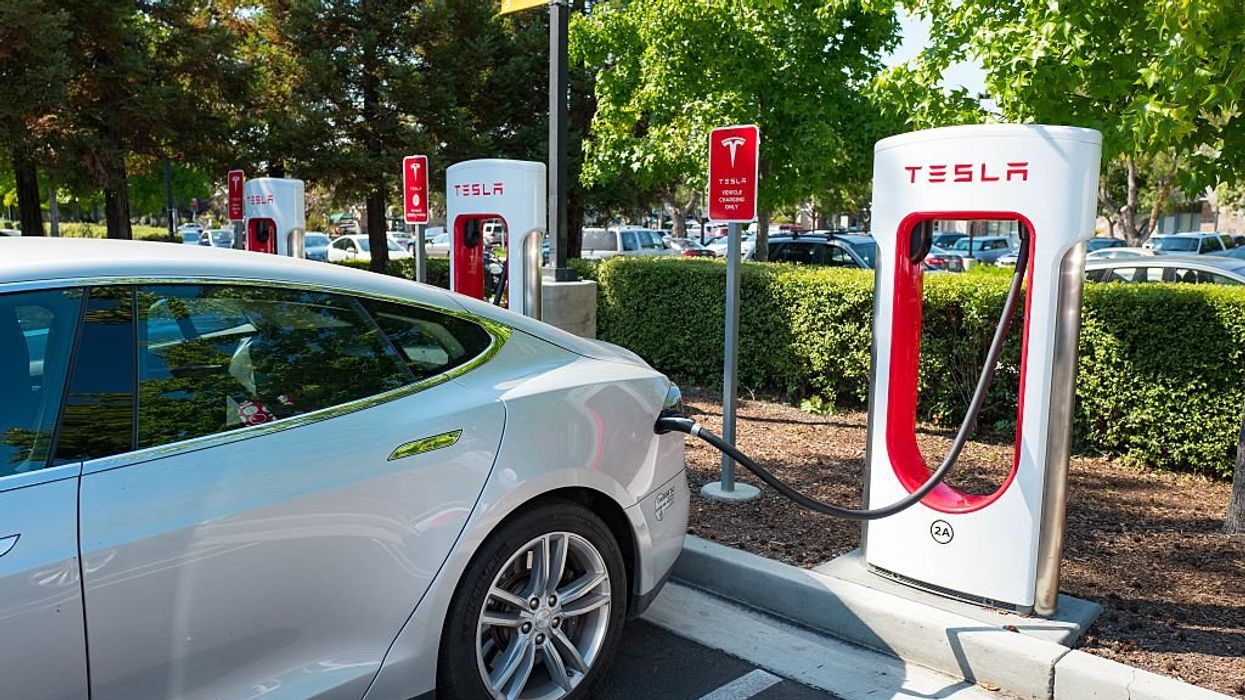
Photo by Smith Collection/Gado/Getty Images

More than one in five electric vehicle charging stations were unusable to drivers in 2022, according to a study done by J.D. Power.
Using data compiled in the first half of 2022 and a survey of more than 11,500 drivers, 20% of drivers failed to charge their vehicles at the nearest EV charging stations. In the latter half of the year, the number slightly rose to 21% according to Kelley Blue Book.
J.D. Power notes that "public charger operability and maintenance" remain a "key issue" to consumers regarding the charging stations, with 72% of EV drivers citing the stations being out of service.
Another 12% said there is too long a wait, and 10% cited payment processing errors, according to the Daily Caller, which spoke to Brent Gruber, executive director of global automotive at J.D. Power.
Kelley Blue Book also provided reasons such as software problems, vandalized chargers, and payment processing errors as reasons for failed charges.
Just two days after the latest report, President Biden seemingly addressed the issue in a statement on Twitter, saying the government will rely on Elon Musk's Tesla charging network to supplement the existing charging stations.
"In building our EV charging network, we have to ensure that as many chargers work for as many drivers as possible. To that end, Elon Musk will open a big part of Tesla 's network up to all drivers. That's a big deal, and it'll make a big difference," Biden said.
The Tesla CEO replied, "Thank you, Tesla is happy to support other EVs via our Supercharger network."
President Biden pledged to build 500,000 charging stations in the country by 2030, but according to Bloomberg, that is 10 times more than what the country currently has. As well, California would need upwards of 1,000,000 charging stations to be able to supply the five million emissions-free vehicles the state hopes to put on the road by 2030.
According to the Zero Emission Transportation Association, $30 billion will be needed in the next 10 years to provide home charging rebates and grants to state, local, and tribal governments. ZETA mimics popular climate goals of 100% of cars sold being electric by 2030, as well as a zero-emissions pledge by 2050, which many European car manufacturers have already agreed to.
Like Blaze News? Bypass the censors, sign up for our newsletters, and get stories like this direct to your inbox. Sign up here!
Andrew Chapados